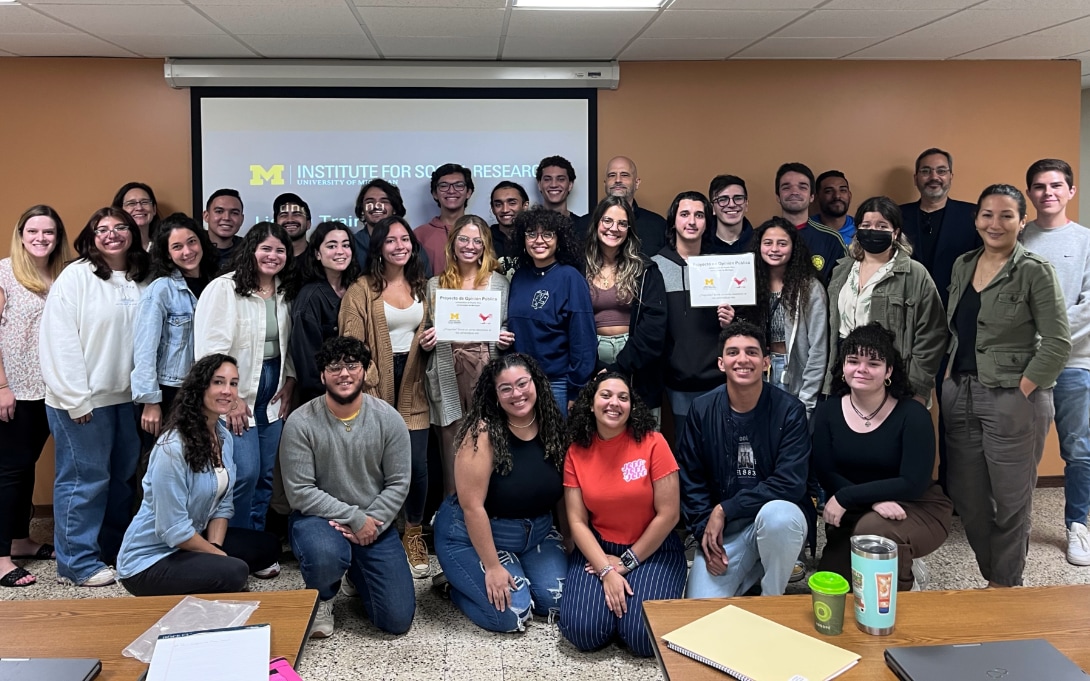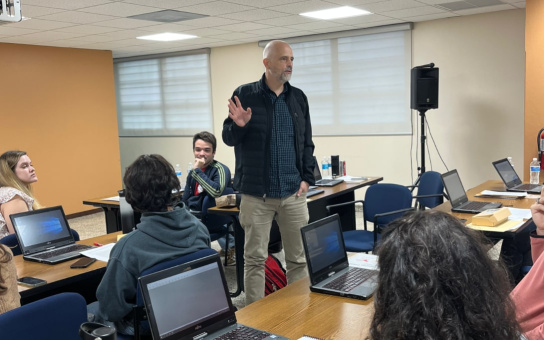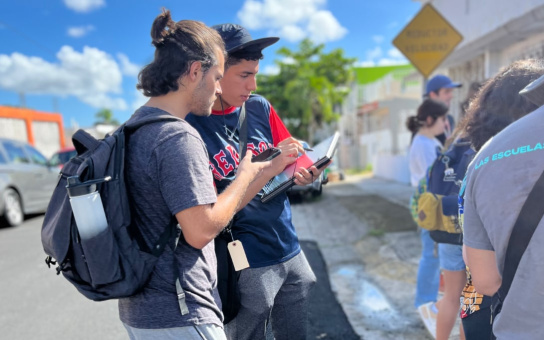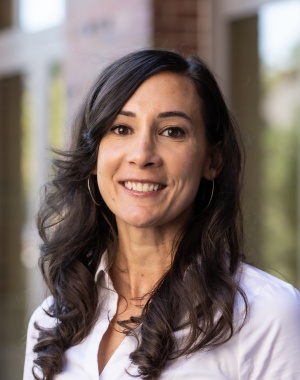
Ostfeld partners with the University of Puerto Rico to build social science infrastructure
By Miriam Wasserman
To say that Puerto Rico has faced profound and dramatic challenges over the past two decades is an understatement.
Even before Hurricane Maria struck in 2017, killing almost 3,000 people and devastating physical infrastructure, the U.S. territory had been struggling with a prolonged recession and fiscal austerity measures that led many to leave the island. Over the last decade, Puerto Rico has lost close to 15% of its population, about 600,000 people, and recovery has been hampered by subsequent hurricanes and a series of earthquakes.
How have these events impacted people's needs, priorities, political affiliations, and participation? Have Puerto Ricans' views on the appropriate relationship with the U.S. shifted?

"We don't know," says Luis Cámara Fuertes, professor of political science at the University of Puerto Rico. "One of the main problems we have in Puerto Rico, both as a researcher and in terms of government policy-making, is that we don't have data."
"We have great surveys of public opinion and political attitudes in the United States and yet we routinely do not include the over 3.5 million Americans who live in U.S. territories," says Mara Ostfeld, an assistant research scientist at the Ford School. To address the vacuum, Ostfeld, Fuertes, and University of Puerto Rico assistant professor Mayra Vélez Serranos have embarked on a long-term partnership to build the infrastructure to collect and disseminate data on public opinion and other political dynamics in Puerto Rico.
The first phase of the Puerto Rican Public Opinion Lab is funded by the National Science Foundation's "Build and Broaden" initiative, which began under the leadership of U-M political science professor Arthur Lupia to support research capacity at minority-serving institutions.
"Often minority-serving institutions in the U.S. do not have the resources to go for really big grants, so the vast majority of NSF grants go to R1 institutions, perpetuating the cycle of more resources going to institutions that already have a lot of resources," says Ostfeld.

Beyond leveraging Michigan's experience with external sources of funding, the project has benefited from technical assistance in the design of a sampling frame. Establishing the sample has been a resource-intensive and painstaking effort. Many houses in Puerto Rico do not have formal addresses or have addresses that are not widely used. The researchers have had to enumerate households, hiring students who are able to go door to door to identify structures and the different ways households are set up.
The team is crafting and testing the questions for the first survey with an eye on the gubernatorial and presidential primary elections of 2024. Puerto Ricans are U.S. citizens subject to U.S. federal laws, but because the island is a U.S. territory, they can't vote in general presidential elections and lack voting representation in Congress.
Ostfeld hopes to be able to capture the policy priorities and preferences of voters, bringing them to the forefront and raising awareness before the election.
"Our goals can and should be to amplify the voices of people throughout our system of government," says Ostfeld. "We want to step outside loaded labels of 'commonwealth', 'independence', and 'statehood' and assess what it is that people want in terms of policy— how much independence do they want; how much support do they want; how they want resources to be prioritized; what type of school system or energy system do people want," says Ostfeld.
This is just the beginning. With the survey research infrastructure in place it will be possible to explore a whole range of issues important to Puerto Ricans going forward.
More in State & Hill
Below, find the full, formatted spring 2023 edition of State & Hill. Click here to return to the spring 2023 S&H homepage.

